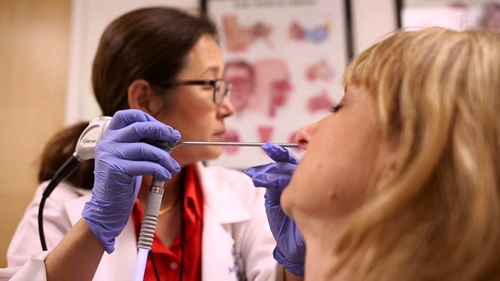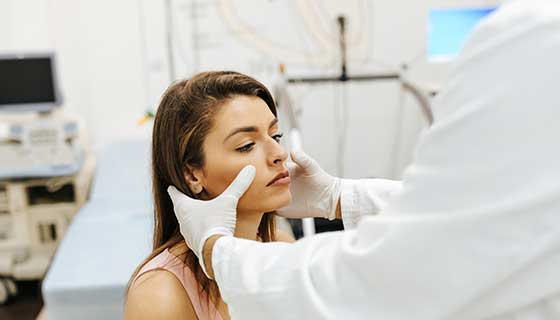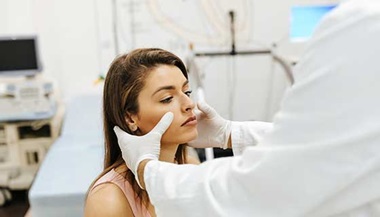Endoscopic Sinus Surgery
Endoscopic sinus surgery is a procedure used to remove blockages in the sinuses. These blockages may cause pain, drainage, recurring infections, impaired breathing or loss of smell.
Sinus surgery is used to relieve symptoms associated with:
- Sinusitis and nasal polyps
- Nasal congestion
- Nasal obstruction
- Recurrent or chronic sinus infections
- Nasal tumors
Goals of Endoscopic Sinus Surgery
This procedure is designed to improve the drainage of the sinuses and to improve airflow through the nose. The goals of endoscopic sinus surgery include:
- Reduction in the number and severity of sinus infections
- Improvement in symptoms associated with sinusitis
- Improvement of airflow through the nose
- Improvement in the sense of smell
- Access for nasal rinses to reach the sinus cavities for cleaning and medication delivery
How do I prepare for an endoscopic sinus surgery?
Because general anesthesia will be used, you will be instructed to not eat or drink after midnight before the procedure. Your surgical team will inform you of any other preparations for surgery.
During Endoscopic Sinus Surgery
Endoscopic sinus surgery is usually performed as an outpatient procedure. It does not include cutting the skin, because it is performed entirely through the nostrils. Most people can return home the same day.
The sinus surgeon will use an endoscope — a thin camera rod with a light at the end — to magnify and better see the sinus tissues. Specialized instruments open the sinuses widely by safely and effectively removing causes of sinus blockage like mucous membrane swelling, nasal polyps and scar tissue. Specialized instruments are also used, if required, to straighten the septum and reduce the size of the turbinates (boney structures inside of the sinuses).
Endoscopic Sinus Surgery Recovery
Following sinus surgery, your doctor will advise you to:
- Use a large volume saline wash to irrigate the sinuses
- Adhere to prescribed medications to prevent infection and discomfort
You will feel some congestion after sinus surgery, which will subside over time — generally in one to two weeks.
Nasal Irrigation After Sinus Surgery
Nasal irrigation after sinus surgery is important to prevent infection and remove mucus and debris in the sinuses. Your doctor may prescribe medications to use in the nasal irrigation system.
There are several types of systems such as bulbs, neti pots, squeeze bottles and syringes. To irrigate the sinuses using one of these systems, typically about 8 ounces of a salt and water solution is rinsed through the nose repeatedly to flush out debris. As you irrigate your sinuses, lean forward to allow the solution to drain out of your nose and mouth. Continue nasal irrigation as recommended by your care team.

Sinus Center
The Johns Hopkins Sinus Center provides state-of-the-art evaluation and treatment for a variety of nose and sinus conditions, including environmental allergies, nasal obstruction, nasal tumor and related disorders.





